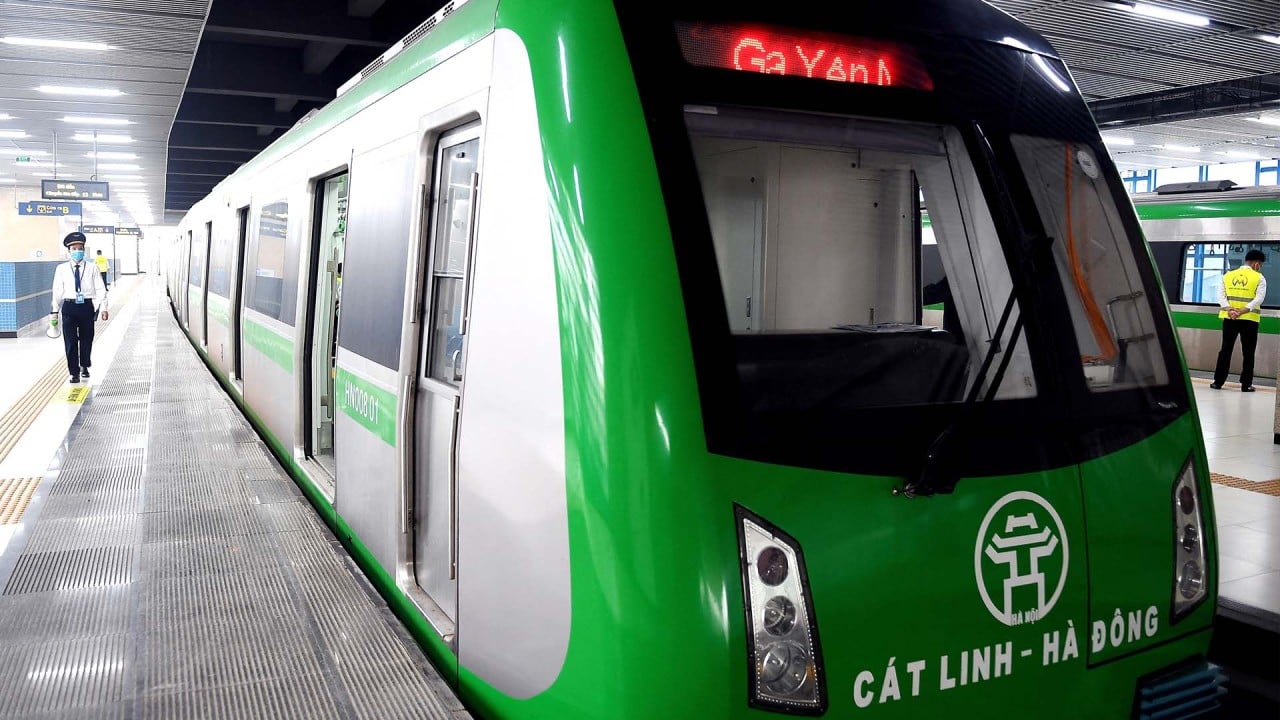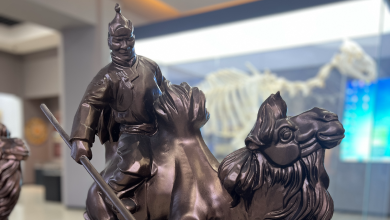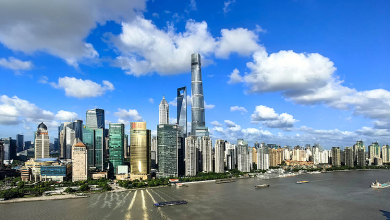Xi Jinping set to woo Vietnam with new rail and rare earth projects in bid to curb rising US clout
[ad_1]
But as Vietnam inches closer toward the West amid its security concerns over China’s ambitions in the South China Sea, Xi continues to be a welcomed guest in Hanoi. He will be received with a 21-gun salute by his counterparts in the Vietnamese Communist Party and meet its four most senior officials.
US ‘friendshoring’ chips push hits a snag as ‘Vietnam can’t decouple from China’
US ‘friendshoring’ chips push hits a snag as ‘Vietnam can’t decouple from China’
“The two parties have a very close relationship with each other,” said Le Dang Doanh, a retired senior economic adviser to five Vietnamese prime ministers, adding that the Chinese embassy in Hanoi liaises not with Vietnam’s Ministry of Foreign Affairs, as would be standard practice in diplomacy, but directly with the Central Committee’s commission for external relations with other communist parties.
“China poses a territorial threat to Vietnam in the South China Sea, but at the end of the day China has every interest in the Communist Party of Vietnam maintaining its monopoly on power,” said Zachary Abuza, a Southeast Asian security expert at the National War College in Washington, adding that a shared political system keeps the two governments close in many respects.
“And while the US says it is committed to working with Vietnam and respects its political system, most Vietnamese leaders believe that given the first opportunity of supporting a colour revolution, America would be there,” he said.
Carl Thayer, an emeritus professor at the University of New South Wales and an expert on Vietnam, said the South China Sea dispute was the “main irritant” in bilateral relations. China claims almost the entire South China Sea, including waters otherwise recognised as Vietnam’s exclusive economic zone.
Maritime confrontations between rival South China Sea claimant nations have sometimes turned violent. Philippine authorities last week said a Chinese ship rammed a fishing boat in disputed waters, leaving the Philippine crew adrift. Vietnam has made similar allegations in the past, accusing China of using its maritime militia to attack Vietnamese fishermen.
But while Vietnam treats China as its primary strategic security threat, the two governments continued to work closely together, Thayer said.
“The two sides manage this issue separately from the range of issues involved in their bilateral relations,” he added.
Rail ambitions
While the agenda for Xi’s discussions with his Vietnamese counterpart Nguyen Phu Trong has not been made public, it is widely expected the two leaders would discuss a new rail link between their countries. As capacity is currently limited on the aging rail connections between China and Vietnam, officials from both countries have long called for an upgrade.
“We can’t forget that northern Vietnam is part of the southern China supply chain, so Vietnam is very nervous about the slowdown in the Chinese economy and what that means for its own economy,” Abuza said.
Manila risks Beijing’s wrath with ‘non-starter’ South China Sea mini pact plan
Manila risks Beijing’s wrath with ‘non-starter’ South China Sea mini pact plan
“The issue of cooperation in implementing such initiatives in Vietnam is an issue of concern to China,” said Doanh, adding that he hopes for Vietnam to take part in the initiative “while still maintaining our independence”.
The railway line alone would be well-received in Beijing, Thayer said. “This is an incremental step forward and a major move to lean towards China.”
Crucially, an upgrade of the old colonial railway connecting Haiphong with Kunming would transverse Vietnam’s richest deposits of rare earths. While the Vietnamese Ministry of Industry and Trade did not reply by press time to This Week in Asia, Doanh said he was aware of interest from both countries for China, which has a near monopoly on rare earths refining globally, to invest in mining projects in Vietnam.
“China has the largest rare earth reserve in the world, Vietnam has the second-largest reserve so I understand China’s desire to cooperate in rare earth exploitation with Vietnam,” Doanh said.

Rare earths, which are used in devices ranging from smartphones to fighter jets, are considered highly strategic due to the resources’ essentiality in modern technology. As China dominates global trade in rare earths, the US and its allies fear losing access in the event of a serious conflict with Beijing.
Given the resources’ geopolitical sensitivity, Vietnam’s friends on the opposite side of rivalries with China would also want to help develop Hanoi’s rare earths sector without Chinese involvement, Abuza said.
“You would think that Japan, South Korea, Australia, the United States, the EU would just love to see some of China’s monopoly on rare earth processing broken,” he added.
While the agenda of the meeting remains hazy, Le The My, former head of the Foreign Affairs Policy Department at the Institute of Chinese Studies in Hanoi, said the message that Xi is trying to send is clear.
“Through President Xi Jinping’s visit, China wants to send a message to Vietnam that China will never ‘leave’ Vietnam,” he said.
“China wants to maintain very good relations with Vietnam as long as Vietnam does not cross the red line by leaning too much towards the US, or following the US,” he added.
[ad_2]
Source link






